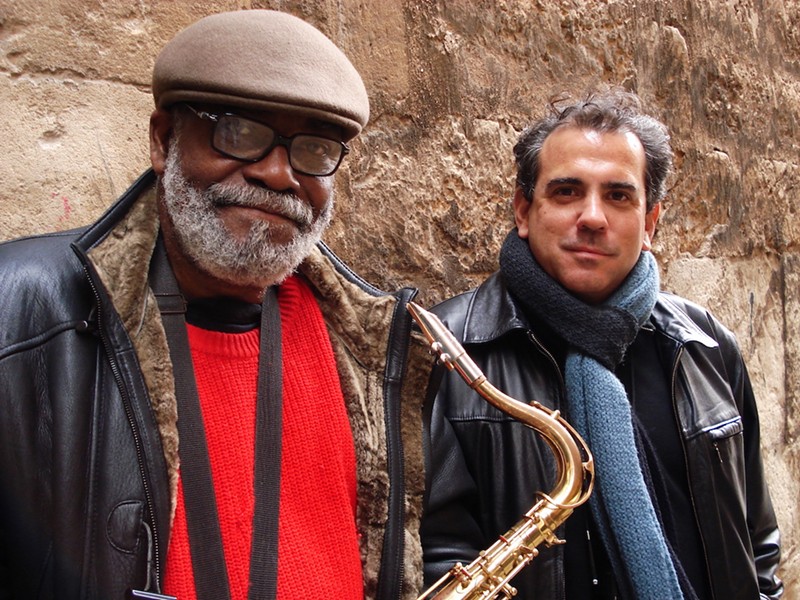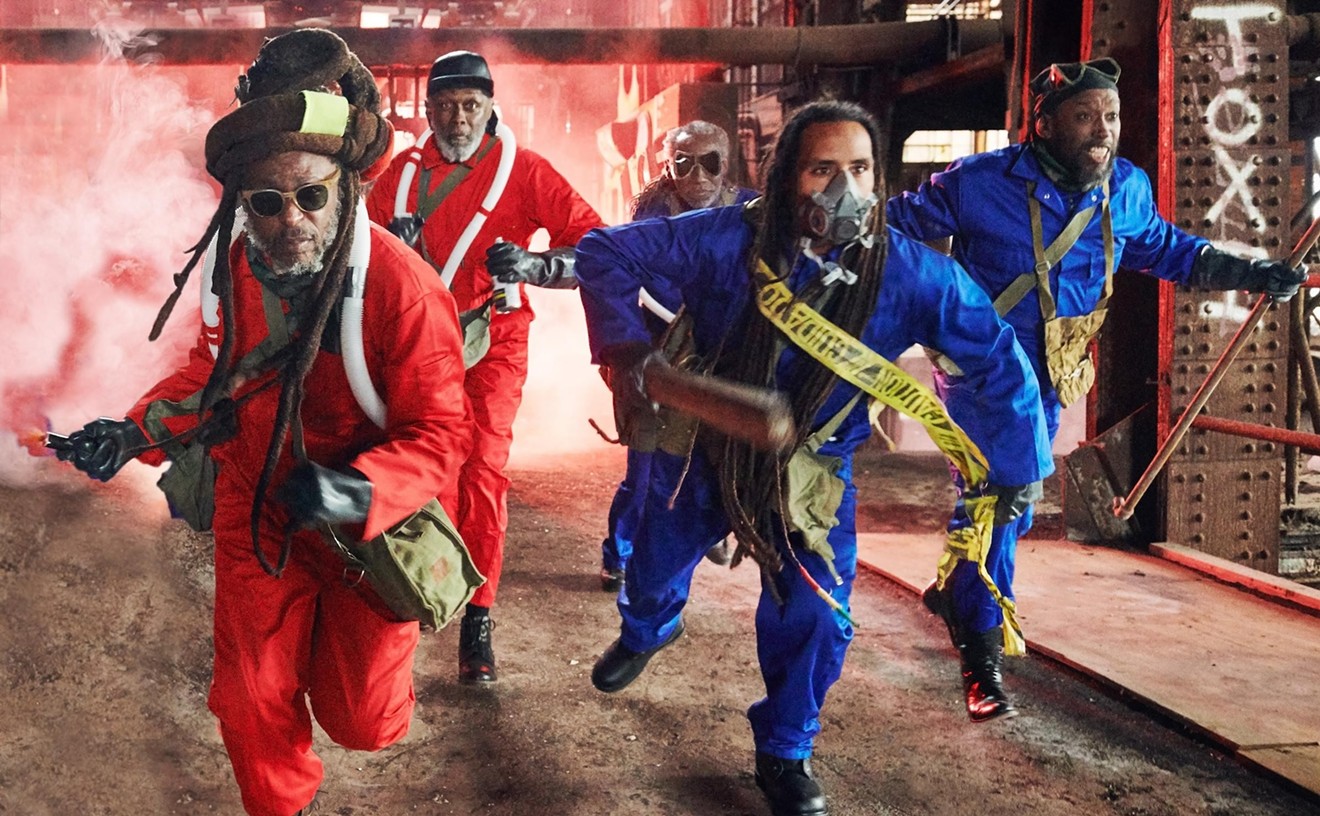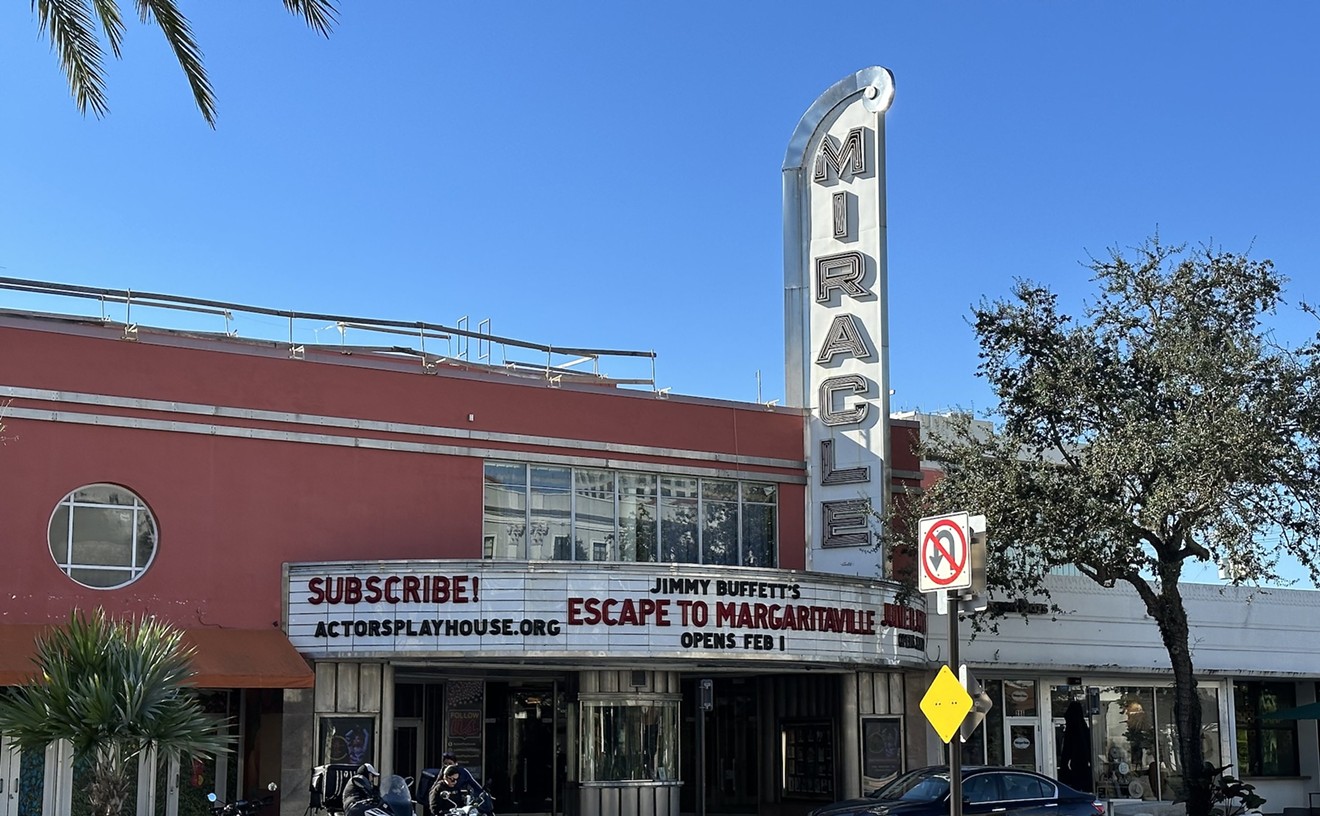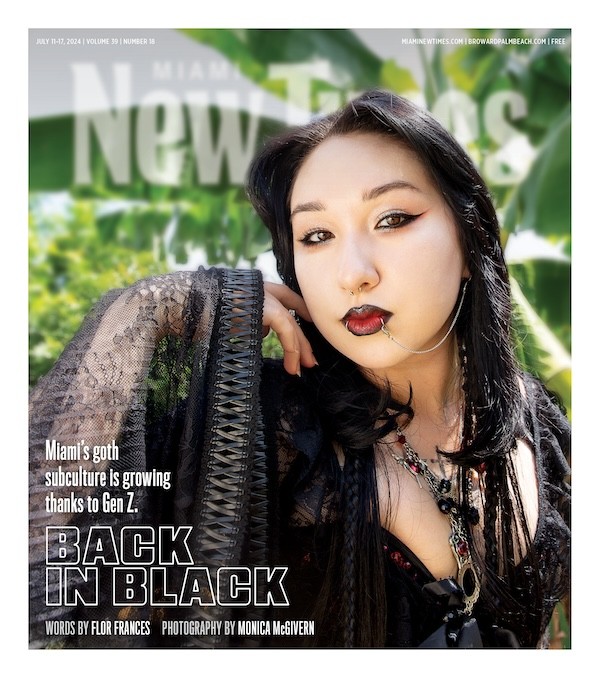In the Cuba of the Revolution, culture has been an often brutally disputed battlefield. Creators make for unruly subjects and present autocrats and dictators with profound challenges and elusive targets. Guns and torture don’t do well against music.
Three films at the 40th-annual Miami Film Festival, opening Friday, March 3, and continuing through Sunday, March 12, at various venues throughout the city, offer a view of the costs of those battles for some artists and, implicitly, for the country — but also hope.
AfroCuba '78 (5:45 p.m. Saturday, March 4, at Silverspot Cinema, 300 SE Third Ave., Miami) tells the story of a once-promising jazz group, a never-released album, the breaking up of the original band, and the resulting scattering of some of its members.
Bebo (7 p.m. Tuesday, March 7, at Silverspot Cinema, 300 SE Third Ave., Miami; streaming begins at noon, Monday, March 6) offers a view of the life in exile of the pianist, arranger, and bandleader Bebo Valdés, a towering figure of the Golden Age of Cuban music, in Sweden. In disagreement with the path of the Revolution, he left the country in 1960. He died in Sweden in 2013 without ever returning to Cuba.
Patria y Vida: the Power of Music (5 p.m. Sunday, March 5, and 6:45 p.m. and 9:45 p.m. Tuesday, March 7, at Silverspot Cinema, 300 SE Third Ave., Miami) documents the creation, impact, and consequences for those behind a song that exploded in Cuba through social media and became an anthem in the historic protests inside and outside the island on July of 2021.
For the Cuban-American director and producer of AfroCuba ’78, making his film wasn’t just about documenting a band's music.
“This film is also about how political manipulation and the games the system in Cuba creates destroyed a project that had the potential to be wonderful, extraordinary,” says Emilio Oscar Alcalde.
Government suspicions about some members wanting to defect ended the chances to travel and created tensions within the band. The original AfroCuba, a group of young virtuosos who blended Afro-Cuban musical traditions and post-bop, came apart. Some members regrouped under the same name but became the band accompanying singer-songwriter Silvio Rodriguez. Others indeed chose exile. “It finished them,” Alcalde says.
Bebo Valdés, a hub in the music life of the Havana of the 1940s and '50s, left for Mexico in 1960 under the pretext of fulfilling a nonexistent contract. While on a tour of Europe, he fell in love with a Swedish woman, married, and settled in Stockholm. He made do for years playing modest piano bars and hotel lounges. His story seemed destined to fade to oblivion — until he was rediscovered with the release of Bebo Rides Again, an album produced by fellow Cuban exile Paquito D'Rivera in 1994. He debuted in the United States in 1996. He was 78. By the time he retired, Valdés had won four Grammys and five Latin Grammys.
Bebo is a glimpse of his story in Sweden. It includes footage from an interview he granted Swedish journalist Stina Dabrowski in 2005, interviews with Valdés' Swedish sons, Raymond and Rickard, and footage from a tribute concert organized by Bebo's grandson, Emilio Valdés, in Union City, New Jersey, in 2019.
Ultimately, however, Bebo is as much a celebration of Bebo Valdés as a meditation on resistance and life in exile.
"I'm concerned with documenting the Cuban diaspora. It's a mission for me," says Cuban-American filmmaker Ricardo Bacallao, director of Bebo, from his home in Berlin. "Nobody asked me to do it, but I see all of us Cubans living outside of Cuba, around the world, doing things, and it's not being documented."
He notes that the European press still covers the Cuban Revolution with sympathy.
"Their view seems fixated 60 years ago... and it's so far from reality now, and that's a problem. You might be a tremendous musician, but if you are a Cuban living in exile, you won't get the kind of support that other exiles might get. There is suspicion."
That might explain, in part, why a Cuban master musician lived for decades in Sweden, surviving at times doing menial non-music jobs, unrecognized. "How Bebo lived for so long in Sweden and never got the attention he deserved is a question that is still open," Bacallao says. "I'd like somebody to answer it."
There is a powerful moment in Valdés' interview when he reflects that "there are two words that must be erased: hatred and rancor. And the other one, worse yet, vengeance. That is the vilest word there is." For the filmmaker, the message is clear.
"This documentary is about us, Cubans living outside the island, and how hard it is to live in exile and the resistance," he says. "I have interviews with people who knew Bebo from the 1950s, the '60s, and the '70s, and they told me about different Bebos. He was angry. This is a human being, not a superhero. But [the Bebo Valdés in the interview] is the wise Bebo. You need a certain level of thinking and experience to get to the point of saying, 'Forget about resentment, frustration, and vengeance. We need to have this healing process for the good of the Cuban family.'"
But before getting to that moment, some battles remain.
In Patria y Vida: the Power of Music, Beatriz Luengo, a Spanish actress making her debut as director and scriptwriter, offers a privileged view of the creation of the song "Patria y Vida" ("Fatherland and Life"), how the collective that produced it came together, and the impact of the music on both its creators and the people inside and outside Cuba.
The very title of the song turns an old Revolution slogan, "Fatherland or Death," on its head, and the lyrics include lines such as "No more lies, my people ask for liberty/No more doctrines, let's no longer shout Fatherland or Death, but Fatherland and Life," or "May no more blood flow for wanting to think differently/Who told you that Cuba is yours? My Cuba belongs to all my people."
The song also rails against the government's attempts at censorship, such as Decree 349, which establishes that all artistic activity had to be authorized in advance by the Cuban culture ministry. "Patria y Vida" appeared painted on walls and became the slogan of the opposition in Cuba and cities around the world, including Miami. The video was viewed millions of times on YouTube.
Success comes with costs. The scenes of the repression in Cuba following the people's embrace of the song's message are chilling and infuriating. Rapper Maykel Osorbo and visual artist Luis Manuel Otero Alcantara, who participated in the project while still living in Cuba, are now serving nine- and five-year sentences in maximum security prisons. Both are also members of the Movimiento San Isidro, a group of artists, journalists, and academics formed in 2018 to protest censorship.
The Patria y Vida collective also includes Yotuel Romero, a founder of the Paris-based hip-hop group Orishas; Alexander Delgado and Randy Malcom, who form the reggaeton duo, Gente de Zona; composer Descemer Bueno; and rapper Eliécer Márquez "El Funky."
Luengo is the non-Cuban insider. An artist herself, she contributed to the birth and development of the song. She's also Romero's wife. The global phenomenon started in the couple's house. Romero had been thinking for a while about "how to turn the government's symbols around," says Luengo, and a conversation about flipping "Patria o Muerte," which she had seen splashed nearly everywhere while on a visit to Havana, "led us to the piano in our living room, and we started."
For Luengo, "this is a story of a song — and the internet. They thought it would all stay between four walls because they knocked down the internet — and as soon as they turned it on again, those images were everywhere. Now if you put the hashtag #PatriayVida on the platforms, you immediately get police abuse, the pain, real people making social denunciations."
She chuckles as she recalls questions about the grand plan of "Patria y Vida."
"There was no playlist, marketing budget, calculation on followers, or algorithms. There just wasn't. It really began, as I believe great stories begin without a pretense. You watch the documentary and realize they had no pretenses," says Luengo. "Their big ambition was to help get the voice of Cuba heard."
– Fernando Gonzalez, ArtburstMiami.com
Miami Film Festival. Friday, March 3 through Sunday, March 12, at various locations; miamifilmfestival.com. Tickets cost $10 to $13
[
{
"name": "Air - MediumRectangle - Inline Content - Mobile Display Size",
"component": "19274298",
"insertPoint": "2",
"requiredCountToDisplay": "2",
"watchElement": ".fdn-content-body",
"astAdList": [
{
"adType": "rectangle",
"displayTargets": "mobile"
}
]
},{
"name": "Editor Picks",
"component": "17482312",
"insertPoint": "4",
"requiredCountToDisplay": "1",
"watchElement": ".fdn-content-body",
"astAdList": [
{
"adType": "rectangle",
"displayTargets": "desktop|tablet"
},{
"adType": "rectangle",
"displayTargets": "desktop|tablet|mobile"
}
]
},{
"name": "Inline Links",
"component": "18711090",
"insertPoint": "8th",
"startingPoint": 8,
"requiredCountToDisplay": "7",
"maxInsertions": 25
},{
"name": "Air - MediumRectangle - Combo - Inline Content",
"component": "17482310",
"insertPoint": "8th",
"startingPoint": 8,
"requiredCountToDisplay": "7",
"maxInsertions": 25,
"watchElement": ".fdn-content-body",
"astAdList": [
{
"adType": "rectangle",
"displayTargets": "desktop|tablet"
},{
"adType": "rectangle",
"displayTargets": "desktop|tablet|mobile"
}
]
},{
"name": "Inline Links",
"component": "18711090",
"insertPoint": "8th",
"startingPoint": 12,
"requiredCountToDisplay": "11",
"maxInsertions": 25
},{
"name": "Air - Leaderboard Tower - Combo - Inline Content",
"component": "17482313",
"insertPoint": "8th",
"startingPoint": 12,
"requiredCountToDisplay": "12",
"maxInsertions": 25,
"watchElement": ".fdn-content-body",
"astAdList": [
{
"adType": "leaderboardInlineContent",
"displayTargets": "desktop|tablet"
},{
"adType": "tower",
"displayTargets": "mobile"
}
]
}
]














